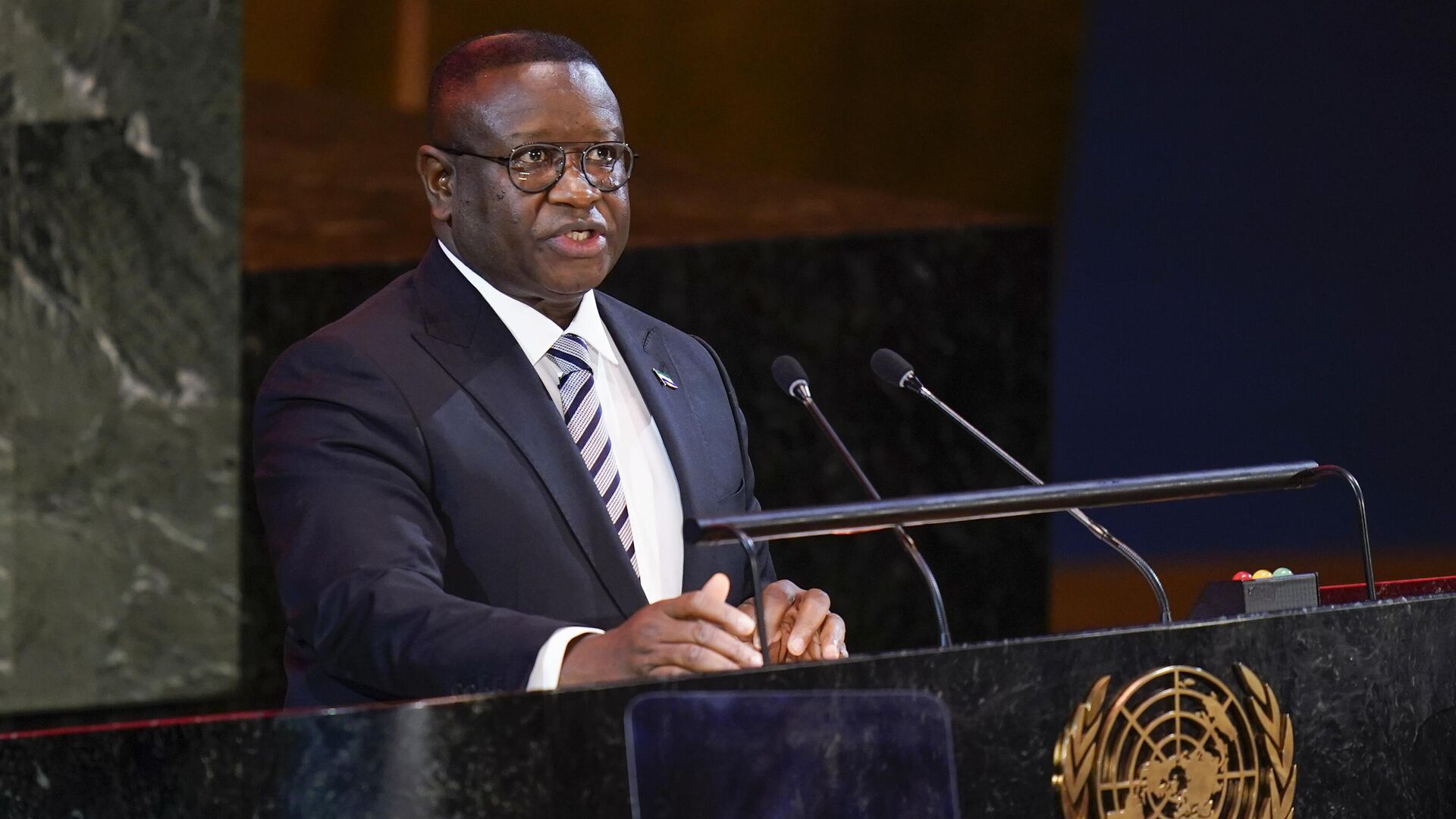https://en.sputniknews.africa/20240813/africa-demands-two-permanent-seats-on-un-security-council-sierra-leones-president-says-1067840271.html
Africa Demands Two Permanent Seats on UN Security Council, Sierra Leone's President Says
Africa Demands Two Permanent Seats on UN Security Council, Sierra Leone's President Says
Sputnik Africa
President Julius Maada Bio chaired a Security Council meeting on "Addressing historical injustice and enhancing Africa's representation in the UN Security... 13.08.2024, Sputnik Africa
2024-08-13T12:56+0200
2024-08-13T12:56+0200
2024-08-13T15:05+0200
sub-saharan africa
sierra leone
west africa
united nations (un)
united nations security council (unsc)
julius maada bio
president
neocolonialism
colonialism
https://cdn1.img.sputniknews.africa/img/07e8/01/04/1064471888_0:0:3072:1728_1920x0_80_0_0_9a09a432f84b86ed5a5967ed19e44140.jpg
Africa has clearly and convincingly articulated a vision and model for reform that would ensure fair representation and meaningful participation of the continent on the UN Security Council, and it demands two permanent seats on the Security Council as well as an additional two non-permanent seats, as Julius Maada Bio stated in a council meeting held in New York, US.Sierra Leone's president underlined that "the time for half-measures and incremental progress is over. Africa must be heard, and its demands for justice and equity must be met."Bio noted that the African continent is the "unquestionable victim" of a distorted, outmoded, and unreflective Security Council structure. He contended that this imbalance not only undermines the legitimacy and effectiveness of the Council but also perpetuates a legacy of marginalization that is deeply rooted in economic exploitation and colonialism.The president urged the international community to capitalize on this opportunity to rectify the historical injustices that have long marginalized Africa and to establish a more equitable and inclusive global order; he declared that "Africa cannot wait any longer."
sierra leone
west africa
Sputnik Africa
feedback@sputniknews.com
+74956456601
MIA „Rossiya Segodnya“
2024
News
en_EN
Sputnik Africa
feedback@sputniknews.com
+74956456601
MIA „Rossiya Segodnya“
Sputnik Africa
feedback@sputniknews.com
+74956456601
MIA „Rossiya Segodnya“
sierra leone, west africa, united nations (un), united nations security council (unsc), julius maada bio, president, neocolonialism, colonialism
sierra leone, west africa, united nations (un), united nations security council (unsc), julius maada bio, president, neocolonialism, colonialism
Africa Demands Two Permanent Seats on UN Security Council, Sierra Leone's President Says
12:56 13.08.2024 (Updated: 15:05 13.08.2024) President Julius Maada Bio chaired a Security Council meeting on "Addressing historical injustice and enhancing Africa's representation in the UN Security Council." Since 2005, African countries have sought equal representation without making significant progress toward fulfilling their legitimate aspirations.
Africa has clearly and convincingly articulated a vision and model for reform that would ensure
fair representation and meaningful participation of the continent on the UN Security Council, and it demands two permanent seats on the Security Council as well as an additional two non-permanent seats, as Julius Maada Bio stated in a council meeting held in New York, US.
"The time for change is now. Africa calls for the abolition of veto power or the extension of the power to all newly permanent members of the UN Security Council," he noted, adding that "Africa's voice must be heard and its demands for justice and equity must be met."
Sierra Leone's president underlined that "the time for half-measures and incremental progress is over. Africa must be heard, and its demands for justice and equity must be met."
Bio noted that the African continent is the "unquestionable victim" of a distorted, outmoded, and unreflective Security Council structure. He contended that
this imbalance not only undermines the legitimacy and effectiveness of the Council but also perpetuates a legacy of marginalization that is deeply rooted in economic exploitation and colonialism.
The president urged the international community to capitalize on this opportunity to rectify the historical injustices that have long marginalized Africa and to establish a more equitable and inclusive global order; he declared that "Africa cannot wait any longer."

